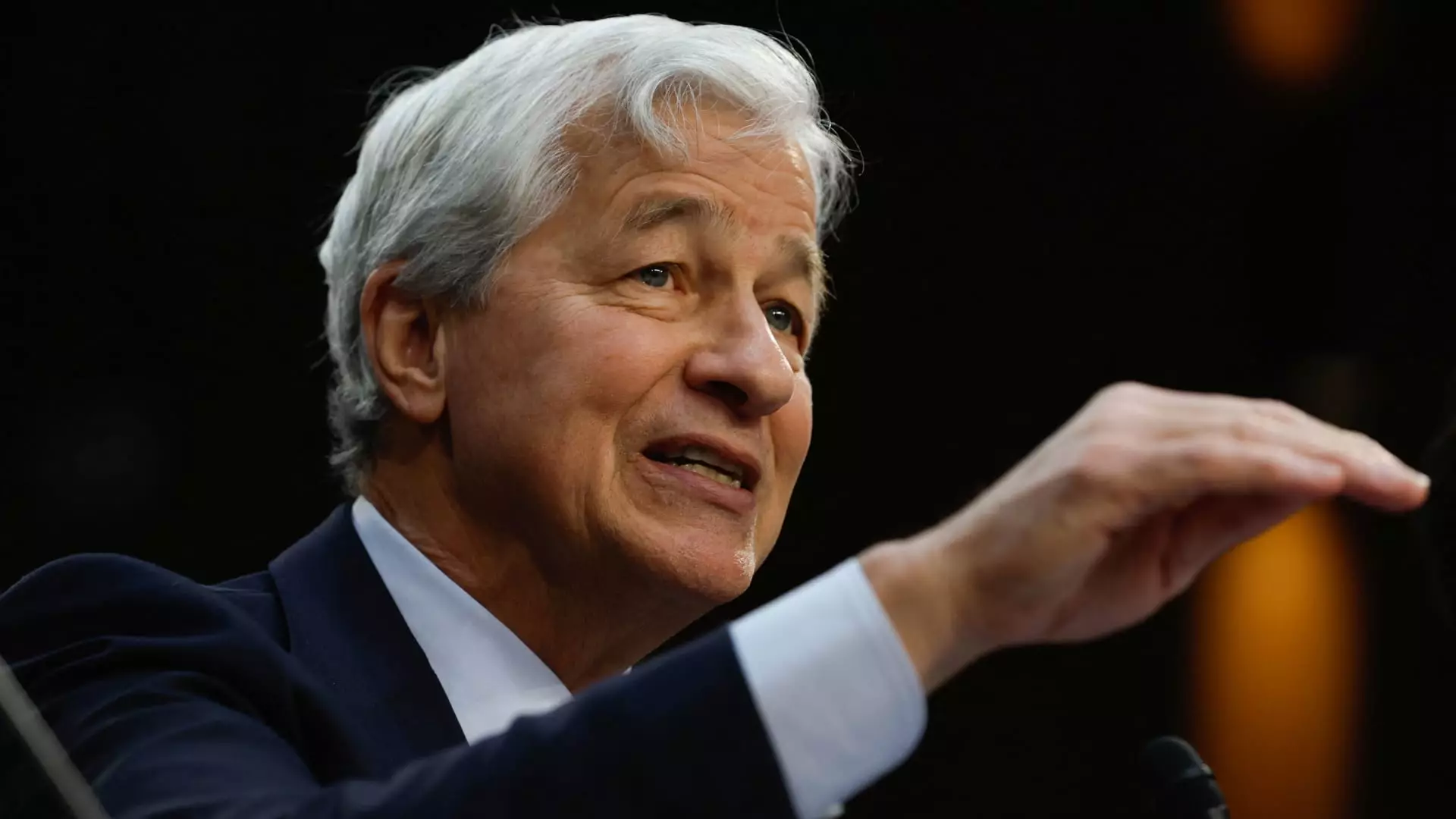When the CEO of JPMorgan Chase, Jamie Dimon, speaks, the financial world pays attention. Recently, Dimon provided a stark perspective on corporate earnings, attributing potential declines to the turmoil originating from President Trump’s trade negotiations. This reflects a troubling trend where political uncertainty directly influences financial stability, leading to a climate of apprehension among corporations. The consequences are palpable: as uncertainty looms, firms struggle to provide reliable guidance for future earnings, signaling a crisis of confidence that can ripple through various sectors of the economy.
Cautious Adjustments from Corporate America
During a recent earnings call, the Chief Financial Officer of JPMorgan, Jeremy Barnum, remained somewhat optimistic, yet the caution in his words echoed Dimon’s sentiments about corporate expectations. Dimon anticipated that analysts would revise S&P 500 earnings estimates downwards—from a projected growth of 5% to possibly a contraction of 5%. Such a massive adjustment indicates that businesses are navigating through an economic fog created by shady policies rather than solid market fundamentals. This erosion of confidence is troubling, as stakeholders become wary of making investments or even considering mergers and acquisitions in a climate riddled with unpredictability.
The Whipsaw of Market Reactions
The response in financial markets has been anything but stable since the announcement of sweeping tariffs. Markets experienced dramatic swings, demonstrating the fears that the ongoing U.S.-China trade tensions have instilled in investors. Companies particularly exposed to consumer spending, including major players like Walmart and Delta, have begun to retract their guidance, further muddying the waters. This isn’t merely a figment of Wall Street’s imagination; real consequences play out as consumers prepare for price hikes due to escalating tariffs. In a twist of irony, Dimon noted that this uncertainty has made corporations more cautious, a reaction that only compounds market volatility.
The Corporate Retreat: A Shift in Focus
Long-term strategic planning is taking a backseat as companies pivot toward short-term measures, with Barnum indicating that many are now focusing on optimizing their supply chains. This change is detrimental as it stifles innovation and sustainable growth in favor of immediate solutions. The corporate landscape is evolving into one that prioritizes survival tactics over long-term vision—a dangerous precedent that could hinder economic prosperity in the years to come.
Consumer Behavior in the Face of Tariffs
Interestingly, Dimon pointed out that, despite the corporate troubles, consumers have shown resilience in their purchasing behavior. In fact, there are conflicting signals: while the national narrative of uncertainty settles in, consumers have been ramping up purchases in fear of impending price increases. This behavior presents a double-edged sword; it showcases the power of consumer confidence but also highlights a troubling dependence on external factors that send ripples through the economy.
In a world where political decisions can shift corporate landscapes overnight, the intersection of trade negotiations and corporate earnings illustrates the fragility of the economic framework. With leaders making decisions that impact the broader economy, there is an urgent need for clearer, more constructive policy-making to promote stability and foster long-term growth. The stakes couldn’t be higher; it’s time for decisive action that prioritizes collaboration over chaos.

